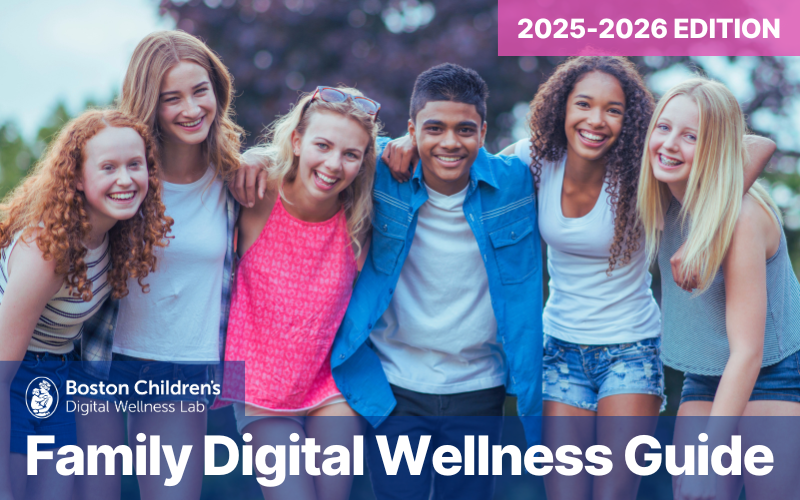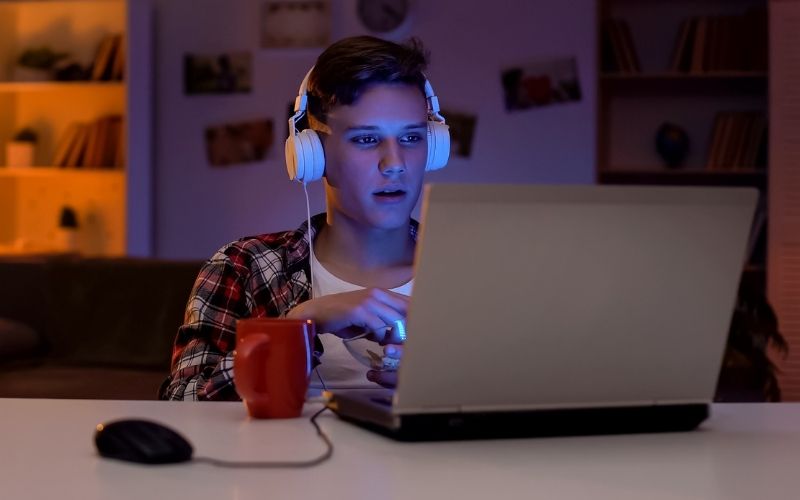My son spends 4 hours or more at a time binge watching videos and scrolling through Tiktok. He is doing okay in school, but he often spends time on his computer and phone after school instead of hanging out with friends and stays up into the morning hours nearly every night, including school nights. I am worried that this isn’t normal. What should I do?
– Worried Mom
Dear Worried,
The teen years have long been a developmental stage during which youth evolve from consuming common, broad market entertainment to an individualized media diet that reflects their personalities. Algorithms are designed to serve social media, streaming video, and online news users with content that is related to what they have already watched. By targeting content to users’ interests, these carefully calibrated tools feed viewers content that keep their eyes and ears focused for as much time as possible.
As technologies evolve and digital content spreads, it becomes increasingly easier to get lost in the endless stream of information and entertainment in our pockets and on screens all around us. In recent years, doomscrolling has become particularly pernicious, as users dive into infinite news and social media feeds about the pandemic, political unrest, climate change, and other challenging topics. Streaming video services enable — and social media can celebrate — binge-watching behaviors. While these behaviors aren’t always signs of problematic use, they can enable sleep disruptions and reduce one’s focus on more important matters.
To help your child break the pattern of excessive, mindless screen use, we recommend having a set of conversations with your child about how they spend their time and where media factors into this:
Have a conversation about how your child spends their time in general.
- “Talk to me about your day yesterday. How did you spend your time after school?”
- “What does your ideal day look like? What is keeping you from having that type of day?”
- “How much time do you have left after you consider school, homework, sleeping, eating, and getting ready? How do you want to spend that time?”
Talk with your child about how they spend their time online.
- “When you are up late online, what are you doing?”
- “How does that make you feel?”
- “Why do you think you like reading/watching that?”
Explore the profit strategy of the companies that command your child’s attention.
- “Why do you think the video streaming service allows you to automatically move to the next episode?”
- “How do you think a social media company makes money?”
- “Why do you think the news is so full of negative stories?”
You can use your child’s responses to identify their preferred way to spend their free time and develop a plan for recapturing their time for these activities. You can devise a media empowerment plan that defines how your child wants to use media, when, and how they can be supported in putting down their phone or turning off their laptop.
As part of this plan, supporting your child in developing their media literacy and critical consideration of the media they are consuming can help them to set aside their device when they are engaging in information bingeing behaviors.
- Talk about news items with your teen and ask them what they think about them. Might there be other perspectives on each event? What might the news writer be wanting them to think and why? What does your teen believe about the event?
- Look at photos of celebrities and others online and ask your child how realistic the images seem. Ask whether they know anyone who looks like that, what it might take to look like that, and whether they believe the person looks like their photo in real life. Discuss your child’s ideas about beauty and ideal bodies and how they developed these concepts.
Finally, you should support your child in developing and maintaining healthy sleep hygiene. Teens and young adults need 8-10 hours of sleep each night to maintain their health and wellbeing. Screen media use in adolescence is associated with taking longer to fall asleep, getting less sleep, and experiencing more sleep disruptions. Support your teen in setting a regular and consistent bedtime and provide a space away from their bedroom where they can set all devices overnight. Provide your teen with an alarm clock so he doesn’t have a need to keep his phone in his room.
Unregulated bingeing of media (including news, social media, video games, tv shows) can be a form of Problematic Interactive Media Use (PIMU), which can result in academic failure, social withdrawal, behavioral problems, family conflict, and physical and mental health problems. If you believe that your child may be suffering from PIMU, please contact the Boston Children’s Hospital Clinic on Interactive Media and Internet Disorders (CIMAID) to explore care options:
- Email: cimaid@childrens.harvard.edu
- Phone: (617) 355-9447








